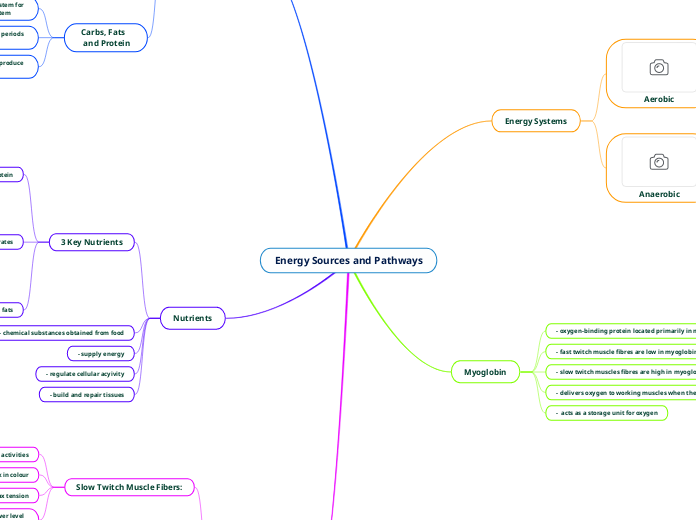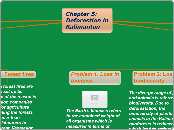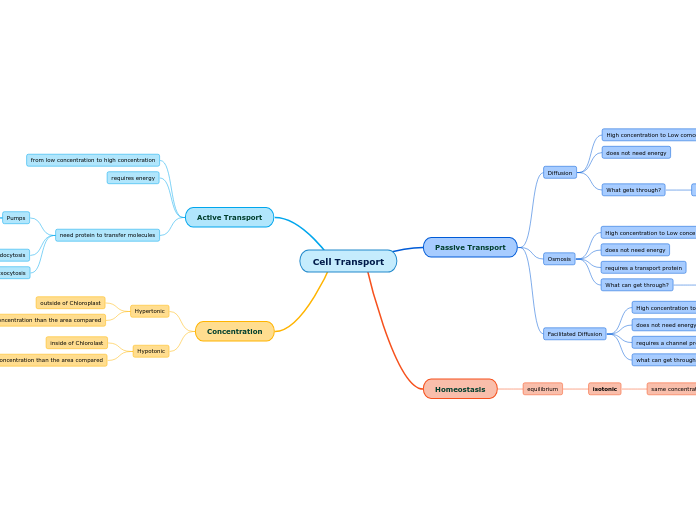Energy Sources and Pathways
Muscle Fibre Types
Fast Twitch Muscle Fibres:
- ideal for short lasting activities
- can generate large amounts of tension
with relatively low endurance levels
- have ability to relax and tense quickly
- more pale in colour
Type2B Fibres
- does not require oxygen
- stores lots of oxygen and high level of enzymes
necessary for quick contractions
Type 2A Fibres:
- allow for high-speed energy release
- muscle fibres are intermediate
type muscle fibres
Slow Twitch Muscle Fibers:
- able to maintain a lower level
of tension for long durations
- generate and relax tension
- red or dark in colour
- ideal for long distance activities
Nutrients
- build and repair tissues
- regulate cellular acyivity
- supply energy
- chemical substances obtained from food
3 Key Nutrients
- fats
- carbohydrates
- provide energy use for cells
provide materials to build cell membranes
- essential for human life
- one of the most abundant natural
substances in nature
- most important source of energy
- Protein
Energy Sources
Carbs, Fats
and Protein
they are broken down to produce
ATP during exercise
provides energy for long periods
of time
used as an energy system for
the aerobic lactic system
Glucose
broken down into pyruvate, which
is converted to lactate
provides energy quickly
used as an energy source for
the anaerobic lactic system
Creatine Phosphate
provides quick, short
lasting energy
used as an energy source for
anaerobic alactic system
Myoglobin
- acts as a storage unit for oxygen
- delivers oxygen to working muscles when they need it
- slow twitch muscles fibres are high in myoglobin
- fast twitch muscle fibres are low in myoglobin
- oxygen-binding protein located primarily in muscles
Energy Systems
Anaerobic
- occurs without the use of oxygen
- can occur in two separate metabolic pathways
one involving partial breakdown of glucose (Glycolysis)
one not involving the breakdown of glucose (ATP-PC)
Aerobic
-Requires oxygen
- leads to the complete breakdown of
glucose
- involves many enzymes and several
complex sub-pathways
one pathway (cellular respiration)









